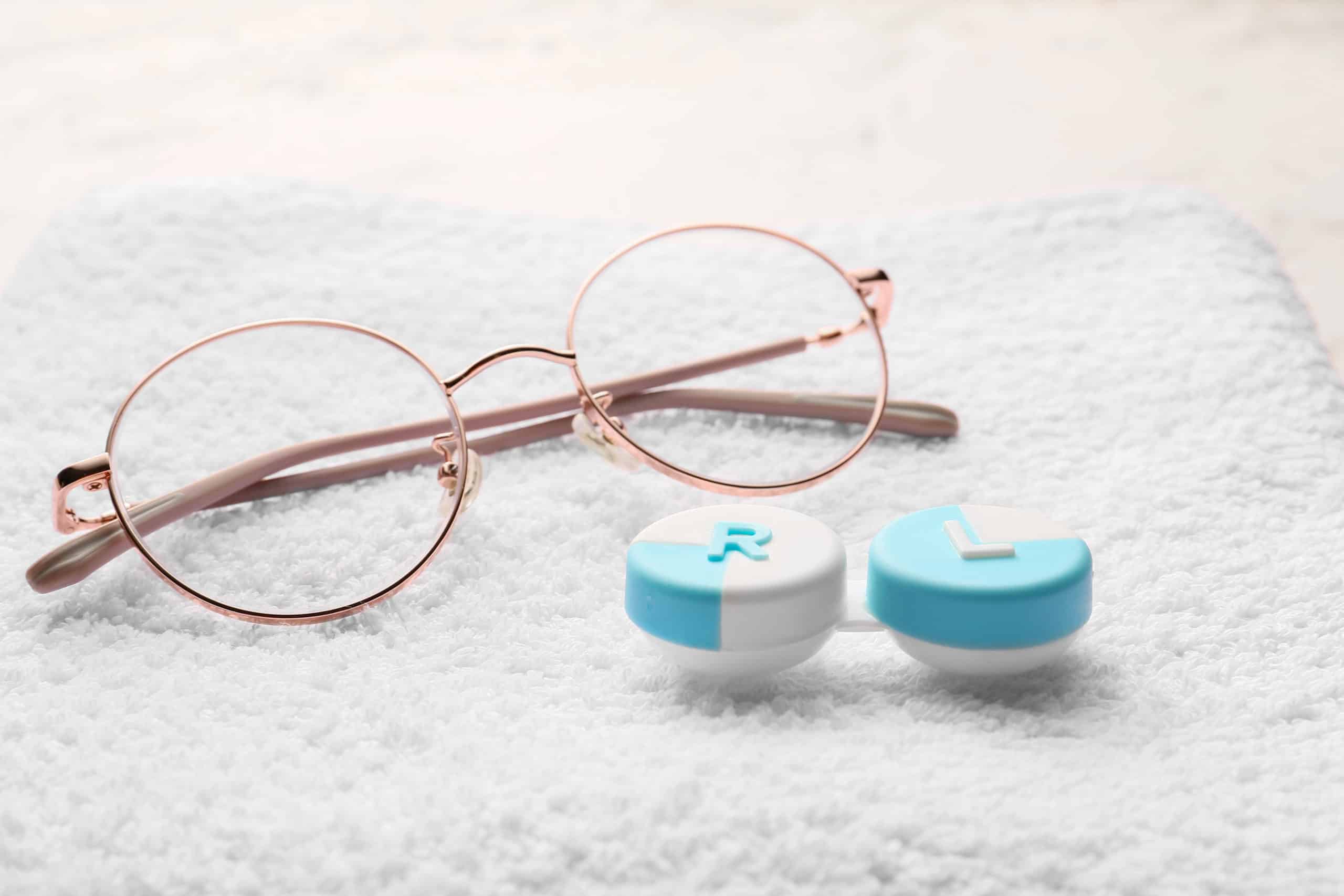What is PRK?
Photorefractive keratectomy (PRK) is a type of refractive laser eye surgery. A refractive error occurs when your eyes do not properly bend light, which can cause blurry vision. This procedure uses a laser to change the shape of the corneal tissue, improving the way that light rays focus on the retina. As a result, photorefractive keratectomy or laser refractive surgery has been found to correct nearsightedness an corneal haze.
PRK can be used to treat the following issues:
Is Photorefractive Keratectomy PRK Laser Surgery Right for Me?
There are certain qualifications that patients must meet in order to undergo PRK surgery. Ideal candidates will have healthy, thin corneas, be 18 years or older, have an eye prescription that has not changed in the last year, and have realistic expectations regarding the outcome of their procedure. To learn more about your candidacy, please contact our office today to schedule a consultation appointment.
Dr. Archana Gupta
Cataract Surgeon, Ophthalmologist, Cornea & External Diseases Specialist
Dr. Archana Gupta is a board certified ophthalmologist. She specializes in cataract, cornea, external diseases and refractive surgery.
The PRK Procedure
The PRK procedure is performed at an outpatient eye surgery center. During this procedure, your surgeon will numb your eyes using eye drops, and a special holder will be placed on the eyes to prevent blinking. The outer layer of the corneal flap will be removed, and a laser will then be used to reshape your cornea. Nonsteroidal anti-inflammatory eye drops and antibiotic drops will then be given before a clear bandage contact lens is placed at the end of surgery to reduce irritation. This entire procedure typically only takes 10-15 minutes to complete.
-
"Staff is Outstanding"
Dr. Gupta is a very skilled doctor who will take the time to explain everything to you... her staff is outstanding as well
-
FC
-
"Pleasant, Prompt and Professional"
It was pleasant, prompt and professional. The Dr.'s assistant was very helpful and explained the procedure well.
-
MM
-
" Professional, Knowledgeable and Attentive"
Dr. Archana Gupta is very professional, knowledgeable, and attentive.
Her office staff members Kira and Maria are polite, friendly, and very helpful.
I would highly recommend this Dr. Gupta and her office.
-
IL
PRK Recovery
Following your PRK surgery, you will need a trusted family member or friend to drive you home. Over-the-counter pain medication can help with eye discomfort, which may last for 2-3 days. Be sure to wear sunglasses when outdoors and be sure to rest. During the first 3-5 days of the healing process, patients do not typically see well enough to drive. Your surgeon will provide you with specific aftercare instructions. Your vision will improve after 3-5 days, with full improvements after one month.
PRK FAQs
Can you get laser eye surgery if you wear bifocals?
Yes, but the treatment plan will depend on your eye health, prescription, and goals. PRK can correct distance or near vision, but it won’t stop age-related changes like presbyopia, which causes the need for reading glasses or bifocals.
How do you prevent corneal haze after PRK?
Post-surgery, it is crucial to follow your eye surgeon's recovery plan to minimize the risk of corneal haze. Maintaining a consistent schedule for using prescribed anti-inflammatory and steroid eye drops is essential, as these medications help reduce inflammation and promote optimal healing of the corneal tissue. Managing UV light exposure is also vital; wearing sunglasses that provide 100% UV protection can significantly reduce the risk of developing haze.
How long is vision blurry after PRK?
It’s common to have blurry vision for the first 3–5 days after PRK as your cornea heals. Your vision will gradually improve over the next few weeks, with most patients noticing their best vision within about one month.
Is PRK better than Lasik?
Neither procedure is universally “better.” PRK is often preferred for patients with thin corneas or certain corneal conditions, while LASIK offers faster visual recovery. Your surgeon can recommend the best option for your eyes.
What happens if you rub your eyes after PRK?
Rubbing your eyes after PRK can have adverse effects on the healing process and may compromise the results of your laser vision correction. Rubbing your eyes can disrupt the delicate epithelial layer that is healing over the cornea, potentially leading to complications such as infection, delayed healing, corneal haze, or even regression of the corrective effect. To prevent accidental rubbing, use protective eyewear or goggles, especially during sleep, for the first few days following the procedure.
Do you have to wear sunglasses indoors after PRK?
You don’t need sunglasses indoors unless your eyes are especially light-sensitive. However, you should wear them outdoors to protect your healing eyes from UV light.
Is it normal to have double vision after PRK?
Mild double vision or halos can occur in the early stages of healing. This usually improves as your eyes recover and the cornea stabilizes.
Is PRK better for astigmatism?
PRK can be an excellent option for treating astigmatism, especially for patients who may not be good candidates for LASIK due to thin corneas or other factors.
What is the success rate of PRK surgery?
The success rate of PRK surgery is generally high, with studies indicating that approximately 90-95% of patients achieve 20/40 vision or better, which is the minimum requirement for driving without corrective lenses. Many patients even achieve 20/20 vision or better.
When can I shower after PRK?
Generally, patients are advised to wait at least 24 to 48 hours before taking a shower. When you do shower, take care to avoid getting water, soap, or shampoo in your eyes, as these substances can cause irritation and slow the healing process.
Can you go blind from PRK surgery?
Severe complications from PRK are extremely rare. When performed by an experienced surgeon, PRK is considered a safe and effective procedure.
Can you shower after PRK surgery?
You can shower the day after PRK, but avoid getting water, soap, or shampoo directly in your eyes for at least one week.
How do I prepare for PRK?
Preparing for PRK involves a few essential steps to ensure the best results and a smooth recovery. Start by scheduling a thorough eye examination with your ophthalmologist, who will evaluate your eye health and suitability for the procedure. Avoid wearing contact lenses for at least one to two weeks before your pre-operative consultation, as they can alter the shape of your cornea, potentially affecting the surgery's accuracy. Keep your eyelids and face clean by avoiding makeup, lotions, and perfumes on the day of the surgery to prevent any potential contamination. Additionally, arrange for transportation, as you won't be able to drive yourself home after the procedure.
How long after PRK can I read?
After undergoing PRK, most patients are advised to rest their eyes for the first few days. It's generally recommended to avoid activities like reading, which can strain the eyes, for at least 3 to 5 days following the procedure. This initial period allows the corneal surface to heal and for any discomfort, such as light sensitivity or a gritty feeling, to subside. As healing progresses, you can gradually reintroduce reading into your routine.
How long does haze last after PRK?
After PRK, it is common for patients to experience corneal haze as part of the healing process. This haze typically starts to develop a few days following the procedure, as the corneal surface begins to heal. For most patients, the haze tends to peak around one to two months post-surgery and can gradually clear over the next several months.
How long does it take to recover from PRK?
Recovering from PRK typically involves a series of stages as your eyes heal and adjust. Initially, you can expect some discomfort and blurry vision for the first few days following the procedure. Most people find that their vision begins to stabilize within the first week, but it can take longer for it to become fully clear and sharp. The majority of recovery, including reduced discomfort and improved vision, usually occurs in the first month.
When can I wash my face after PRK surgery?
Generally, it is advisable to wait at least 3 to 5 days before washing your face, but this can vary depending on your recovery process. When you do wash your face, be gentle and avoid direct contact with water or soap in the eyes to prevent irritation or injury. Using a clean, damp cloth to gently pat your face clean can be an effective way to maintain cleanliness without disturbing the healing process.
Can I look at screens after PRK?
You can look at screens after PRK, but your eyes may feel sensitive, dry, or strained, especially in the first few days. It’s best to limit screen time during the early recovery period to avoid discomfort and give your eyes time to heal.
Can I wear glasses after PRK?
Yes, you can wear glasses if needed during recovery. Some patients choose to use temporary glasses for certain activities until their vision stabilizes.
What are the disadvantages of laser eye surgery?
Laser eye surgery, while popular for correcting vision problems such as myopia, hyperopia, and astigmatism, does come with certain disadvantages. One of the primary concerns is the potential for side effects such as dry eyes, glare, halos, or double vision, especially at nighttime. Although many of these symptoms are temporary and tend to resolve within a few weeks or months post-surgery, they can be uncomfortable for patients. There's also a small risk of vision loss due to surgical complications, with the potential for infection or delayed healing. Lastly, the cost of laser eye surgery can be significant and is often not covered by insurance, making it less accessible for some individuals.
Schedule Your Free Consultation Today
If you are interested in learning more about PRK and if it is right for you, please contact Advanced Eye Surgeons in Boca Raton and Tamarac, FL today.
Related Blogs
5 MINUTE READ |
January 25, 2023
Lasik Vs. PRK: Which is Right for Me?
Lasik
Read More
“Everyone deserves to witness the beauty of our world in its full glory.”








